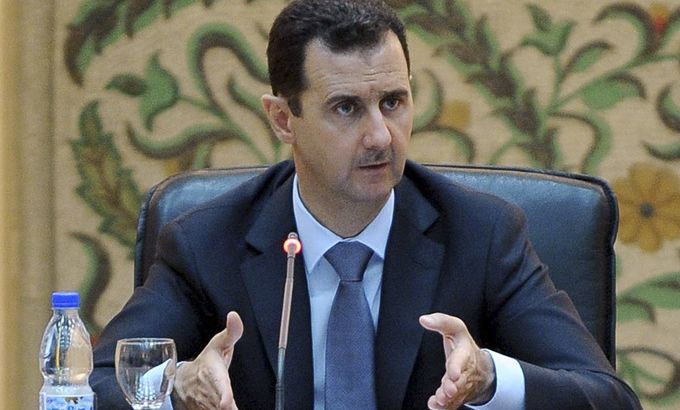Syria transition plan denounced by both sides
State media and opposition groups criticise UN-brokered plan for unity government, as violence continues across country.

The opposition and state media both branded an international plan for a transition in strife-torn Syria a failure, as the death toll for a weekend of violence topped 140.
World powers meeting in Geneva on Saturday agreed that the transition plan could include current regime members, but the West did not see any role for President Bashar al-Assad in a new unity government.
Russia and China insisted that Syrians themselves must decide how the transition takes place, rather than allow others to dictate their fate.
Moscow and Beijing, which have twice blocked UN Security Council resolutions on Syria, signed up to the final agreement that did not make any explicit call for Assad to cede power.
Official Syrian media and the opposition Local Coordination Committees (LCC) group demonstrated rare agreement in slamming the outcome.
The meeting “failed,” trumpeted Al-Baath, newspaper of the ruling party of the same name.
“The agreement of the task force on Syria in Geneva on Saturday resembles an enlarged meeting of the UN Security Council where the positions of participants remained the same,” it said.
‘Positive elements’
The LCC, which organises protests on the ground in Syria, said the outcome showed once again a failure to adopt a common position.
It called the transition accord “just one version, different in form only, of the demands of Russian leaders allied to the Assad regime and who cover it militarily and politically in the face of international pressure”.
Burhan Ghalioun, a senior member and former head of the opposition Syrian National Council, told pan-Arab television Al-Arabiya that “this is the worst international statement yet to emerge from talks on Syria”.
According to the SNC’s official Facebook page, he described the plan as a “farce”.
Ghalioun called a “mockery” the notion that Syrians should negotiate with “their executioner, who has not stopped killing, torturing… and raping women for 16 months”.
SNC spokeswoman Basma Qadmani, however, told the AFP agency in Ankara there were some “positive elements” in the deal, although “important elements remain too ambiguous… and the plan is too vague to foresee real and immediate action”.
Qadmani said: “The first one is that the final declaration says that the participants agree to say that the Assad family cannot rule the country any more, and therefore the Assad family cannot lead the transition period.
“The second positive element is the agreement that the transition should comply with the legitimate aspirations of Syrian people.
“For us this means that Assad should go because Syrian people have already said that they want Assad to go.”
Violence continues
Iran, a strong ally of Assad, said the Geneva meeting was “unsuccessful” because Damascus and Tehran were not invited.
“This meeting was unsuccessful… because Syria was not present and some influential nations were not present,” Hossein Amir Abdolahian, an Iranian deputy foreign minister, told state television.
The United States and European nations reportedly opposed the presence of Iran, although UN-Arab League envoy Kofi Annan and UN chief Ban Ki-moon had wanted Tehran to attend.
Opposition groups are to hold a two-day meeting in Cairo from Monday and are also expected to meet on Tuesday with Arab ministers in a bid to agree on a shared platform, Egyptian media and the Arab League said.
The Geneva deal came despite initial pessimism over the talks amid deep divisions between the West and China and Russia on how to end the violence that the Observatory says has killed more than 15,800 since March 2011.
In weekend violence, more than 140 people were killed across Syria, including 120 on Saturday, the Syrian Observatory for Human Rights said. On Sunday, at least 21 people were killed, including five in the central province of Hama.
Annan said on Saturday it was up to the Syrians to decide who they wanted in a unity government. But he added: “I would doubt that Syrians… would select people with blood on their hands to lead them.”
The United States and France both said it was clear there was no future role for Assad.